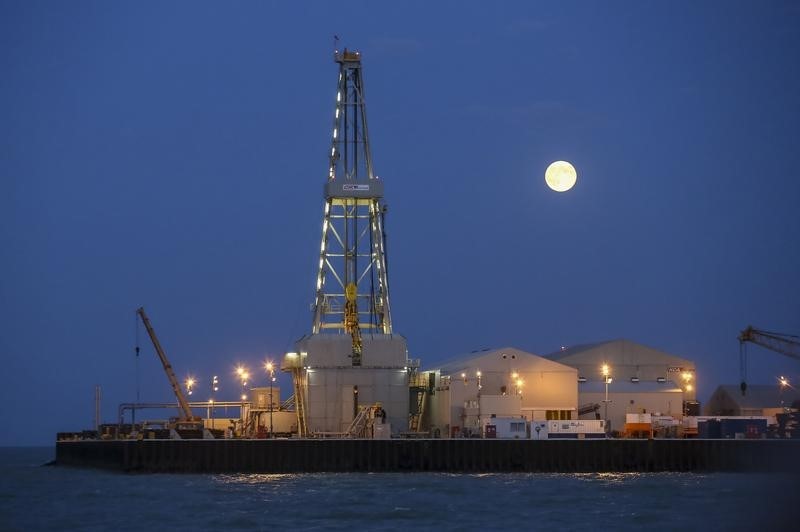Investing.com - Crude prices dipped in Asia despite some upbeat comments overnight on compliance with OPEC-led output curbs from Russian energy minister Alexander Novak.
On the New York Mercantile Exchange crude futures for November delivery dipped 0.18% to $49.89 a barrel, while on London's Intercontinental Exchange, Brent was flat at $55.77 a barrel.
Novak said in a television interview that Russia wants to continue to monitor supply and demand working with OPEC, adding that while compliance has been more than 100% for output curbs, with Saudi Arabia and Russia pulling extra weight, there has been some slippage that was being addressed.
Overnight, crude oil prices settled lower on Wednesday as data showing U.S. crude oil stockpiles fell for the second straight week was offset by a sharp uptick in exports which could dampen Opec's efforts to reduce supply.
Inventories of U.S. crude fell by roughly 6m barrels in the week ended Sept. 29, handily beating expectations of a draw of 756,000 barrels.
Gasoline inventories, one of the products that crude is refined into, rose by roughly 1.6 barrels, missing expectations of a draw of 1.1m barrels while distillate stockpiles fell by 2.6 barrels, topping expectations of a decline of 1.8m barrels.
The draw to crude stockpiles comes against a backdrop of surge in U.S. crude oil exports to 1.98m barrels a day as the wide spread between Brent and crude oil prices continued to drive demand for U.S. crude oil.
Some analysts, however, suggested that the surge in U.S. crude exports could undermine Opec and other major oil producers' efforts to curb output.
"The U.S. oil-production profile has forced OPEC and some non-OPEC countries participating in the ongoing output-cap agreement to re-evaluate their strategy," said Abhishek Kumar, senior energy analyst at Interfax Energys Global Gas Analytics in London.
Also weighing on crude oil prices was the prospect of an uptick in global supply as Libya restarted its largest oil field after gunmen forced a shutdown of the field over the weekend.
Overall sentiment on crude oil, however, remains positive on signs that Opec's efforts to curb output are narrowing the gap between demand and supply, edging the market closer to rebalancing.
"It's all driven by the idea is that the production cut is starting to work and the rebalance is underway," said Gene McGillian, director of market research at Tradition Energy in New York.
In May, Opec and non-Opec members agreed to extend production cuts of 1.8m barrels per day for a period of nine months until March 2018.
